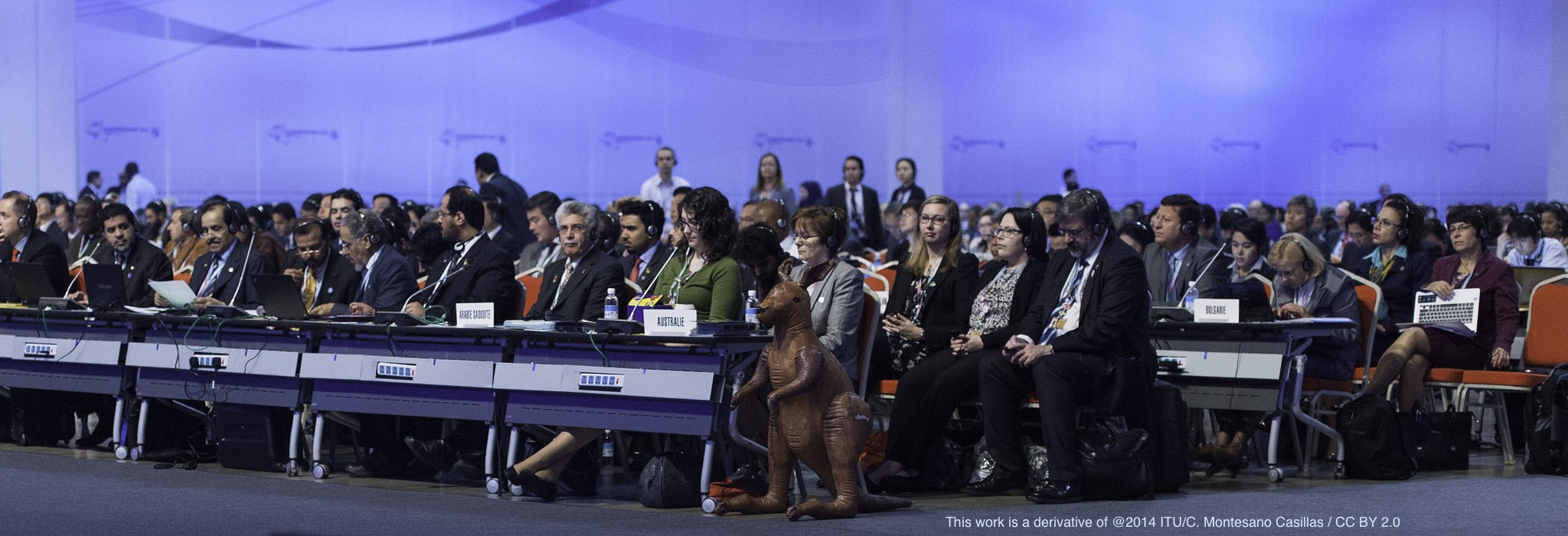Week 2 of the ITU Plenipotentiary began last week by concluding on elections of the Radio Regulations Board and the ITU Council. This means that the parties and receptions come to an end and the long, hard and sometimes tedious work of negotiating the text begins. The good news is that they gave us Sunday off so, in theory, people are rested and ready for a long week!
If you’ve been to an ITU meeting, you’ll know that at this stage of a 3-week conference, countries are still introducing their ideas and staking out their ground on various topics. Small group conversations explore opportunities for compromise, but in the main sessions, more and more text goes into square brackets to reflect that there is no consensus.
On the issue of Internationalized Domain Names (Res 133), countries are looking to update the 2010 Resolution in light of progress made in this area since then. There is a debate on whether to include references to work outside the ITU by the technical community and other multistakeholder processes where the work has taken place. The room was also divided on what work the ITU should do on this issue going forward.
With regard to IP networks (Res 101), there are numerous proposals to update the existing Resolution, including adding economic language on international interconnection costs, security, and “unlawful international surveillance”. There was very little progress made and most language is in square brackets. After a late-night debate over this Resolution, no agreement was reached and we’ll be back at it again either today or tomorrow.
A separate ad hoc group considered the ITRs, in particular how to review the ITRs and, if so, on what schedule. Countries disagree on the starting point for a review – should it be 2012 (when the WCIT happened) or 2015 (when the new ITRs come into force for those who signed)? The scope, nature and outcome of a possible ITR review has not yet been agreed and we expect another ad hoc meeting. A proposal that the ITU should host the next World Telecom Policy Forum (WTPF) on review of the ITRs is still under discussion.
Finally, another evening ad hoc meeting took up the issue of illicit use of ICTs (Res 174). A host of proposals from countries would include references to various UNGA Resolutions on cybersecurity, privacy and other topics related to national security matters. Other countries expressed concern that additions of these references would, in effect, expand the scope of the resolution to include topics that are outside the ITU mandate. In addition, there is a proposal to consider a global charter on ICT Security but this has not been agreed.
So, we’re on to another day.
For Wednesday, 28 October, the meeting will turn its focus to the following topics:
- ITU role in the High Level Review of WSIS;
- Alternative calling procedures (Res 21)
- Apportionment of revenues (Res 22)
- Confidence and security (Res 130)
You can find out more by visiting our page on Plenipot14 or by reading our Issues Matrix.

